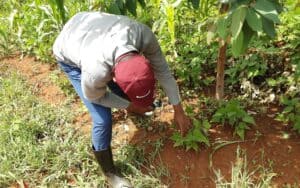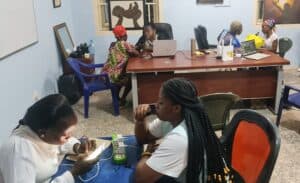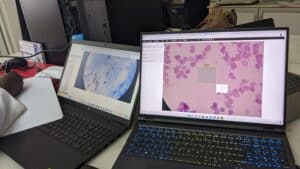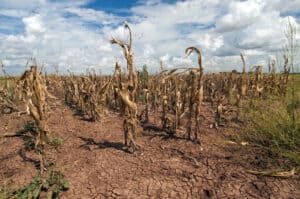Overview
Lacuna Fund aims to fund organizations working at the intersection of AI and social impact to provide them with the resources they need to address urgent problems in their local communities. We aim to cultivate capacity and support emerging organizations as well as experienced researchers in the field.
We accept proposals during our open Request for Proposal (RFP) periods. Our funding domains include datasets for machine learning in Agriculture, Language, Health, and Climate. Lacuna Fund’s RFPs fall under one or more of these domains. You can follow us on LinkedIn or Twitter or subscribe to our newsletter to be alerted when we announce new RFPs, datasets, or funding awards.
About Lacuna Fund
Lacuna Fund Hubs
In 2024, in line with our guiding principles of equity and participatory approach, and as part of our strategy to share leadership with institutions in the regions where datasets are created, we partnered with the African Center for Technology Studies (ACTS) and Centro Nacional de Inteligencia Artificial (CENIA) to serve as the first two Lacuna Fund Hubs.
In this capacity, ACTS and CENIA will manage regional and global grantmaking, disseminating requests for proposals and resulting datasets, facilitating Technical Advisory Panel review and selection, and providing technical assistance and capacity building to grantees. In 2024, ACTS will support the Health RFP (Antimicrobial Resistance) and CENIA will support the Language RFP (Natural Language Processing).
ACTS and CENIA are committed to Lacuna Fund’s mission to get resources to data scientists, researchers, and social entrepreneurs to create, expand, or unlock training and evaluation datasets to solve urgent problems in their communities. They both have continental and global networks that will enable them to share calls for datasets widely and connect grantees and their datasets to potential data users.
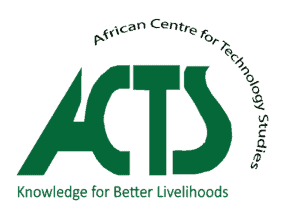
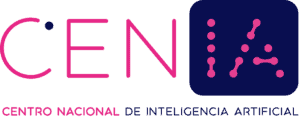
Eligibility
To be eligible for funding, organizations must:
- Be either a non-profit entity, research institution, for-profit social enterprise, or a team of such organizations. Individuals must apply through an institutional sponsor. Partnerships are strongly encouraged as a way to strengthen collaboration and maximize the benefits derived from the use of the datasets, but only the lead applicant will receive funds.
- Have a mission supporting societal good, broadly defined.
- Be headquartered in the country or region where data will be collected. Institutions based in other countries or regions can apply as partners of the lead institution. As stated above, only the lead applicant will receive funds.
- Have all necessary national or other approvals to conduct the proposed research. The approval process may be conducted in parallel with the grant application, if necessary. Approval costs, if any, are the responsibility of the applicant.
- Have the technical capacity – or the ability to build this capacity through a partnership described in the proposal – to conduct dataset labeling, creation, aggregation, expansion, and/or maintenance, including the ability to apply best practice and established standards in the specific domain (e.g. antimicrobial resistance; natural language processing) to allow high quality AI/ML analytics to be performed by multiple entities.
For eligibility requirements specific to the 2024 RFPs, please see the “Open Requests for Proposals” section below.
Selection Process
Lacuna Fund uses an open solicitation process, conducting requests for proposals (RFPs) for projects aligned with Fund goals in a particular domain on a fixed timeframe. In other words, we are not accepting proposals for every domain at all times, but when we are, solicitations are open to any applicant who meets the eligibility criteria.
Initial screen: RFPs are generally open for 45 days or more. Proposals are submitted through an online portal. After the conclusion of an RFP, the Secretariat and partners perform an initial screen for qualifications and eligibility criteria.
Panel review: Following the initial screen, a Technical Advisory Panel of domain experts review proposals based on selection criteria, then meet to make selections. Technical Advisory Panel members who review proposals for an RFP are not eligible to submit or collaborate on proposals for that call.
Notification and revisions: After the Technical Advisory Panel meets, the Secretariat will finalize selections or communicate any needed revisions to potential recipients. All communication and revisions will be finalized through the applicant portal.
Post-award confirmation: Upon notification of selection, recipients will be prompted to submit due diligence and financial information through the applicant portal.
Potential grantees should not begin work until a contract has been signed. More details on expectations and support after a grantee begins work are available through the portal for current grantees.
Past RFPs
Lacuna Fund has previously funded machine learning datasets in the following domains:
2020
- Natural Language Processing (NLP)
- Agriculture
2021
- Natural Language Processing (NLP)
- Agriculture
- Equity & Health (E&H)
2022
- Climate & Health (C&H)
- Climate & Energy (C&E)
2023
- Sexual, Reproductive, and Maternal Health and Rights (SRMHR)
- Climate & Forests (C&F)
2024
- Antimicrobial Resistance (AMR)
- Natural Language Processing (NLP)
You can find past funding opportunities here.
